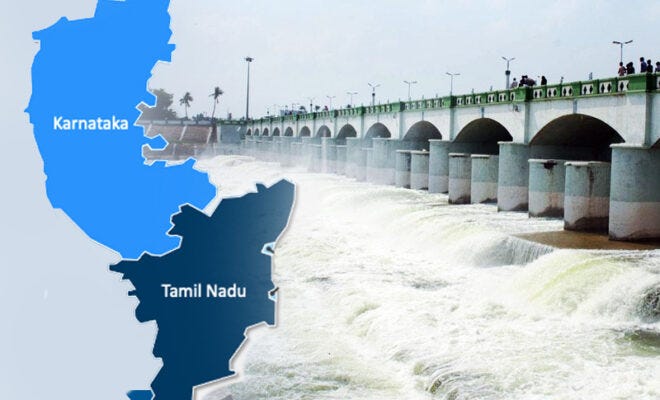Cauvery River Conflict Continues as Karnataka Grapples with Water Shortages
The age-old Cauvery water dispute, which has persisted since the British era, remains a contentious issue between the Indian states of Karnataka and Tamil Nadu. Dating back to 1924, an agreement permitted Mysore, now Karnataka, to construct a dam for the storage of Cauvery River water. However, the introduction of a review clause after 50 years initiated a series of disputes.

In 1990, the Cauvery Water Disputes Tribunal (CWDT) was established to address this protracted conflict, involving not only Karnataka and Tamil Nadu but also Kerala and Puducherry. The tribunal issued temporary orders mandating Karnataka to release a specified volume of water to Tamil Nadu on a monthly or weekly basis.
The latest development centers on the Cauvery Water Management Authority (CWMA) directing Karnataka to release 5,000 cusecs of water to Tamil Nadu for a 15-day period. Karnataka, citing its own acute water shortage, has expressed its inability to comply. Karnataka’s Chief Minister, Siddaramaiah, has called upon Prime Minister Narendra Modi to intervene and facilitate discussions between the two states to resolve the dispute.
The Supreme Court has also played a role, though it recently declined further involvement, urging CWMA and the Cauvery Water Regulation Committee to consider factors such as drought and rainfall when making decisions. Karnataka faces a critical situation due to inadequate rainfall, relying heavily on reservoirs like Krishnaraja Sagara, Harangi, Hemavathi, and Kabini for water supply. These reservoirs are at alarmingly low levels, raising concerns about a potential water crisis, particularly in cities like Bengaluru, which requires a substantial amount of water, around 1.6 TMC per month.
The Cauvery water dispute underscores the complex challenge of water allocation between Indian states, with Karnataka’s predicament serving as a stark reminder of the urgent need for sustainable water management practices. While the historical roots of the issue predate independence, the current circumstances demand thoughtful consideration of the water needs and resources of each state. The central government’s role in resolving this long-standing conflict remains pivotal, and the search for a viable solution continues.



Comments
Post a Comment